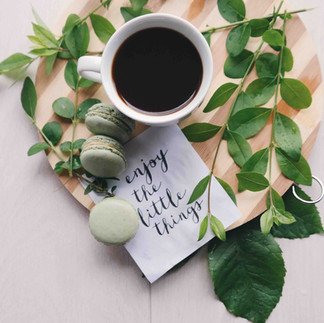An Attitude of Gratitude
- Ambila Nath
- Aug 4, 2021
- 3 min read
Updated: Feb 15, 2024
If someone asked me to name things I was grateful for, I would have no problems coming up with the generic list that:
I’m grateful
- for my home
- for the abundant food I have to eat
- for my healthy and functional body
- for my family and friends
- for the clothed I have to wear
- for the country I live in
And then if they asked me why I’m grateful for all those individual things, my automated response would be – well I’m grateful:
· for my home because people are homeless.
· for the abundant food I have to eat because I know others are starving.
· for my healthy and functional body because so many are sick or disabled.
· for my family and friends because I know others have lost loved ones or
· for the clothes I have because I know others lack basic needs.
· for the freedoms my country provides because I know some live with oppression and hate, and there are refugees with no place to call home.
But if they then asked me how often I feel grateful, and how long those feelings of gratitude last?
That’s when I would have to face the truth and admit that those feelings of gratitude are often short-lived and conditional.
It’s easy being grateful when you think about those who have less. People living in poverty or in war-torn countries, or when someone is sick, losing their job or coming to an end of a relationship; that’s when you feel a sense of how lucky you are.
But what I have found is that, as a general, people find it much harder to feel truly grateful when they compare themselves to those who have More.
Your sense of gratitude can wilt a little when someone else has a much larger, newer, nicer thing that you do. It’s an honest and human thing if you can admit that and in doing so you are able to see where your own demons lie.
So now ff you were completely honest with yourself, your true statements would probably be a lot like this:
· I’m grateful for the food on my table because I know others are starving…but I wish we had the money to be able to eat out more. I swear everyone we know has tried out that new restaurant already.
· I’m grateful for my healthy and functional body because I know so many are sick or disabled…but I’d love to look like that woman at the gym who has amazing abs and perfect hair.
· I’m grateful for my loving family and friends…but that group of ladies on Facebook sure seems to have a way more exciting social life than I do.
There is always something else and something more that we want or wish we had.
We need to find true contentment in our own lives so that that we feel true gratitude and not just usher the words on auto-pilot when someone asks us ‘What are you grateful for’.
The solution maybe to just keep working on ourselves so that we feel grateful, regardless of who or what we’re comparing ourselves to. It’s a great way for us to become more authentic and have a deeper sense of gratitude that lasts, instead of the fleeting one that comes when we hear of others’ bad luck.
Being grateful and happy doesn’t mean we can’t aspire for better things. It just means that you don’t let the “wants” consume you, and you don’t let the “dot dot dots” derail your sense of gratitude.
In focusing on gratitude, I want you to focus on happiness too. Don’t just want to be grateful for things that you have that others don’t. Be grateful IN SPITE of what others have that you don’t.
My challenge for you:
Pay attention to what steals your sense of gratitude. Make an effort to feel grateful in those moments when gratitude comes the least naturally.
#blogcarnival #attitudeofgratitude #begrateful #bethankful #feelit #notjustsayit #thankyou #beyou #ambilanath
















Comments